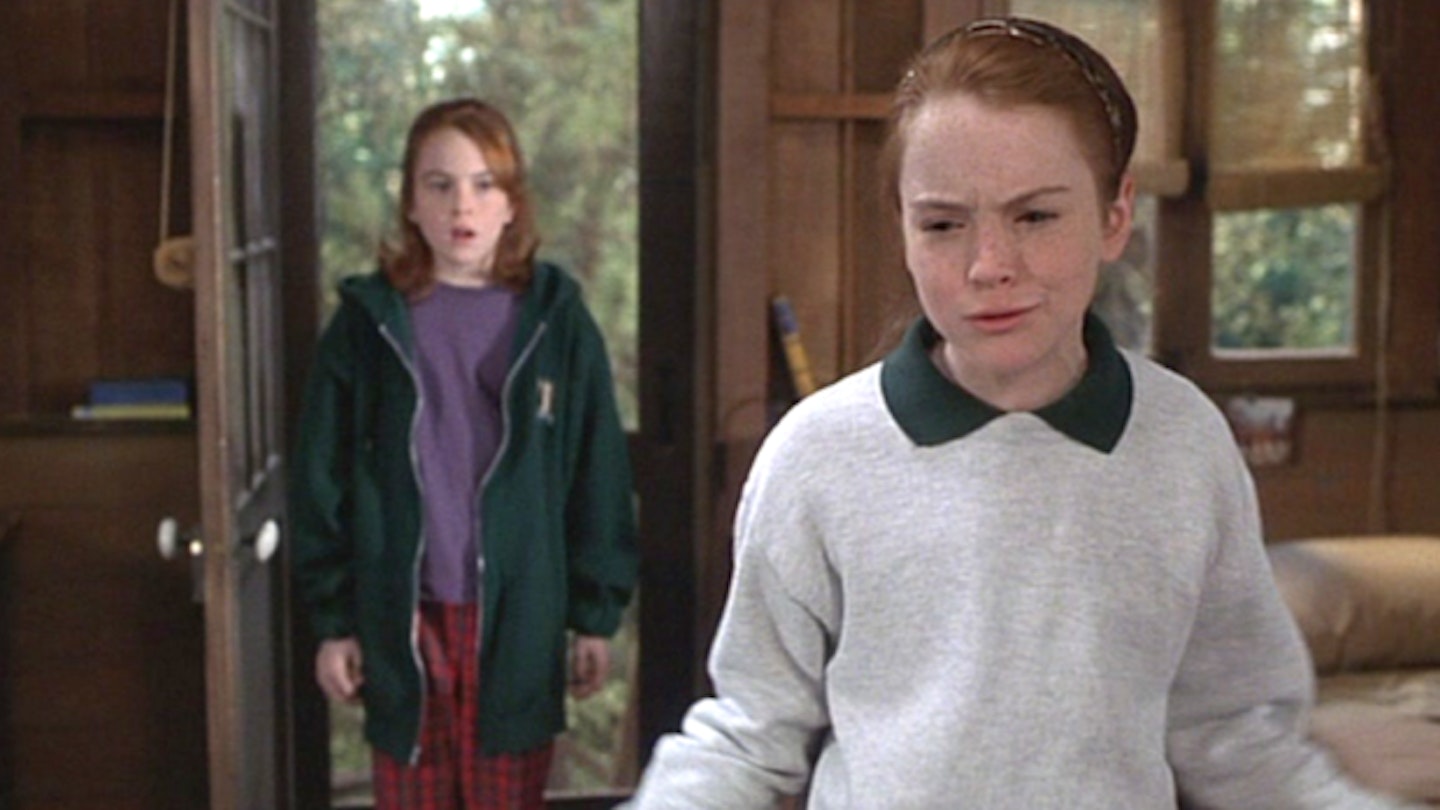Is it just me or does it feel like a good chunk of what’s 'new' in the cinemas these days isn't actually new? We're in the middle of a decade-long deja vu. The film industry spent the last few years trying to convince us that it's the 80s again (hello 2017 versions of, Beauty and the Beast. And King Kong. And Jumanji, to name a few) and boy, are we suckers for nostalgia. Why else would the 25th anniversary of Clueless this weekend spawned a thousand Instagram memes? And let's not forget that today marks the 22nd anniversary of The Parent Trap, which will be marked with a virtual reunion of the cast.
But these cinematic throwbacks aren't random, you guys. It's actually all part of a pop culture pattern that might be kind of dictating our lives. No big deal.
You see, there's this thing that Patrick Metzger calls the 'Nostalgia Pendulum', and it basically explains that pop culture is on a 30-year cycle. Which could be why those super popular films of the 80s and now 90s keep rearing their re-imagined heads all at the same time.
Metzger analysed over 500 films and found out that the average time it took for a hit to be remade was just under 23 years, reports The Times. Writing on his blog The Patterning, Metzger said: ‘the driving factor seems to be that it takes around 30 years for a critical mass of people who were consumers of culture when they were young to become the creators of culture in their adulthood’.
It makes sense if you think about it. Say you're in the film industry and have to come up with something that you know people will enjoy, chances are you'll draw from you own favourite films and tv shows or, you know, just make the same thing again. In the blog we're given the examples of The Parent Trap, Star Wars, Fame and Ghostbusters as some of the big hitters of the 80s that were all remade 22-37 years after their original counterparts were released.
'It can be explained equally well from the consumer side', Metzger writes. 'After about 30 years, you’ve got a real market of people with disposable income who are nostalgic for their childhoods. So artists working in popular mediums are rewarded for making art that appeals to this audience'.
Safe to say that we're no strangers to the grip that nostalgia has on us these days. And it's not entirely shocking that film studios and advertisers are capitalising on it, using 'the nostalgia pendulum to build an audience's emotional attachment with the release of something new'. Very clever, Hollywood. Very clever.
It also won’t surprise you to hear that this extends way beyond films, though. We see it in fashion, on TV and in music too. But, surprise, surprise, this nostalgic resurgence of the things we were into 30 years ago doesn't come without a potential downside. Metzger warns that the nostalgia pendulum has ‘profound consequences for how art is created, how we conceptualize culture, and perhaps even what sort of political rhetoric comes into vogue’.
I suppose on the one hand you could look at the cycle as potentially stifling of creativity, if you wanted to get really deep. Because is anything even new anymore? ‘Pop culture is forever obsessed with a nostalgia pendulum that regularly resurfaces things from 30 years ago', Metzger says. But on the other hand, while we might enjoy floating around in a haze of familiarity, it wouldn't be fair not to acknowledge the exciting, legitimately new gems of film that make it to the big screen and have a huge impact on the industry. Because how many Oscars, Golden Globe or Bafta winning films were remakes?
Like this? You might also be interested in…
A Few Absolutely Useless Life Lessons Learned From Nostalgic Teen Horror Films
Follow Jazmin on Twitter @JazKopotsha
This article originally appeared on The Debrief.
